In 2018, ThePrint’s list of India’s leading intellectuals captured the zeitgeist like nothing else. Public conversation about it lasted for weeks.
This year, we bring you a new list—the intellectuals to watch out for in the next decade.
ThePrint formed a jury panel of experts to nominate a list of thinkers in the fields of geostrategic affairs, economy, social science, and political thought. Members of the jury decided the names individually and in complete secrecy.
The list of economic intellectuals spotlights figures who are reimagining India’s digital public infrastructure, exploring the intersection of caste and capitalism, championing Dalit entrepreneurship, and identifying new areas in ecological economics.
Jurors: ThePrint’s panel of jurors includes Infosys co-founder Nandan Nilekani, economist Sanjay Reddy, entrepreneur Jaithirth Rao, former Chief Economic Advisor Arvind Subramanian, and policy stalwart Montek Singh Ahluwalia.
 Amit Basole: Professor of Economics, Azim Premji University
Amit Basole: Professor of Economics, Azim Premji University
Basole’s pioneering work on India’s changing labour markets, especially the annual *State of Working India* report, is a major contribution to national debates about economic challenges, swimming against the current. He also heads the Centre for Sustainable Employment at Azim Premji University, focusing on labour rights and economic justice.
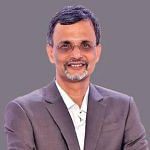 Anantha Nageswaran: Chief Economic Advisor to the Prime Minister
Anantha Nageswaran: Chief Economic Advisor to the Prime Minister
A brilliant economist, Ananthanageswaran stands out for his unexpected and innovative economic thinking. His role involves advising on macroeconomic policy and he is known for integrating unconventional approaches to traditional economic problems.
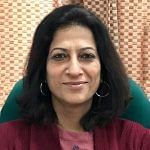 Amita Batra: Professor of Economics and Chairperson, Centre for South Asian Studies, JNU
Amita Batra: Professor of Economics and Chairperson, Centre for South Asian Studies, JNU
Batra specialises in India’s trade policy and has made significant contributions to understanding the complexities of trade in the context of global economic challenges. Her work aims to influence the evolution of trade strategies that can bolster India’s economic resilience, especially during difficult times
 Anush Kapadia: Assistant Professor of Economics, IIT Bombay
Anush Kapadia: Assistant Professor of Economics, IIT Bombay
A promising and very original young scholar researching shifts in the international monetary system and the role of India and other developing countries within it. He works on the politics of financial systems to, in his own words, “understand how system-design choices are also political choices, and how these choices lead to macro-social outcomes such as growth or crises.”
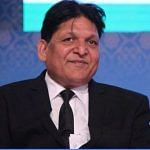 Chandra Bhan Prasad: Journalist, scholar, author, activist, and political commentator
Chandra Bhan Prasad: Journalist, scholar, author, activist, and political commentator
An economist-sociologist who argued that economic liberalisation has unleashed forces of structural change that are finally breaking down the caste system. His mantra is that it is the market and not Marx that will uplift Dalits, and he is a solid supporter of Dalit entrepreneurship and Dalit capitalism.
 Chinmay Tumbe: Associate Professor of Economics at IIM Ahmedabad
Chinmay Tumbe: Associate Professor of Economics at IIM Ahmedabad
Tumbe’s scholarship as a business historian brings vital perspectives on India’s economy and its intersections with global capitalism. He has also published extensively on urban economic history, shedding light on how historical trends shape contemporary economic practices.
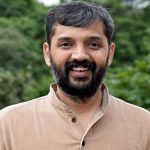 Deepak Malghan: Associate Professor, Public Policy, IIM Bangalore
Deepak Malghan: Associate Professor, Public Policy, IIM Bangalore
A boundary-crossing ecological economist, Malghan is bringing physics, biology, chemistry, environmental science, and economics into conversation, as well as the economic consequences of social stratification in India, and the history of economic thought in India and globally.
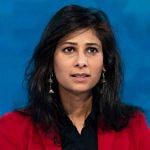 Gita Gopinath: First Deputy Managing Director, International Monetary Fund (IMF)
Gita Gopinath: First Deputy Managing Director, International Monetary Fund (IMF)
She is someone who is good at understanding both international macroeconomics and finance on the one hand and trade on the other. Gopinath’s influential role at the IMF positions her to shape global economic policy discussions significantly.
 Karthik Muralidharan: Professor of Economics, University of California, San Diego
Karthik Muralidharan: Professor of Economics, University of California, San Diego
His work on using large-scale randomised controlled trials to improve state capacity is impressive, as is his understanding of policy and implementation. Karthik Muralidharan is also known for his research in education economics, particularly in evaluating educational interventions in India.
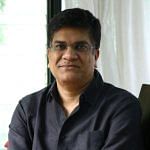 Niranjan Rajadhyaksha: Executive Director at Artha Global
Niranjan Rajadhyaksha: Executive Director at Artha Global
An erudite economist at Artha Global, a policy organisation that supports governments to design, implement and institutionalise policy frameworks. Rajadhyaksha’s research interests include macroeconomics, political economy and economic history.
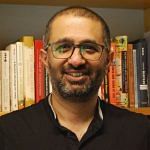 Nitin Pai: Co-founder and Director, Takshashila Institution
Nitin Pai: Co-founder and Director, Takshashila Institution
He is building an excellent policy institution of the kind India desperately needs. Pai focuses on strategic studies and public policy reform, advocating for a more informed citizenry in governance matters. His columns in ThePrint are informative and lucid.
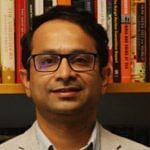 Pranay Kotasthane: Deputy Director, Takshashila Institution
Pranay Kotasthane: Deputy Director, Takshashila Institution
One of India’s brightest young bilingual intellectuals at the intersection of tech and policy. He has made waves with his latest book, When the Chips Are Down: A Deep Dive into a Global Crisis, co-authored with Abhiram Manchi.
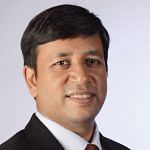 Rahul Matthan: Visiting Faculty at NLSIU, Bengaluru and Partner, Trilegal
Rahul Matthan: Visiting Faculty at NLSIU, Bengaluru and Partner, Trilegal
Apart from being the co-founder of Trilegal, one of India’s largest law firms, he is a pioneer at the intersection of law and technology. He has played an important role in the legal frameworks for India’s digital public infrastructure.
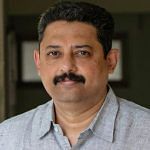 R Ramakumar: Professor, School of Development Studies, Tata Institute of Social Sciences
R Ramakumar: Professor, School of Development Studies, Tata Institute of Social Sciences
A wide-ranging scholar who has intervened on many important debates, especially those to do with food security and agriculture in India, but covering a wide range of areas including national and international economic policy. His work on demonetisation was excellent, for instance.
 Shoumitro Chatterjee: Assistant Professor of International Economics, Johns Hopkins University, US
Shoumitro Chatterjee: Assistant Professor of International Economics, Johns Hopkins University, US
Not as well-known as he should be, but he has done some really excellent work on Indian agriculture and trade, which is a rare combination. If he continues on his current trajectory, he could become a very influential economist, contributing to India’s two challenges—agriculture and trade—his areas of expertise.
 Sunil Amrith: Professor of History, Yale University
Sunil Amrith: Professor of History, Yale University
He works on history, economics, and the environment. He has also helped make Yale one of the buzziest places for global scholarship on India. Amrith’s new book is The Burning Earth, an environmental history of the modern world that foregrounds the experiences of the Global South.



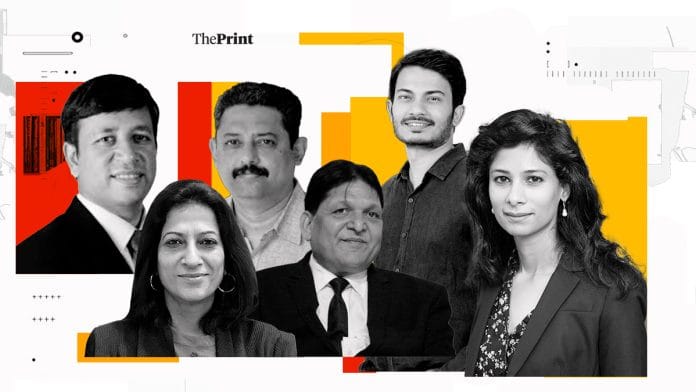



The bias in the selection of the “intellectuals” is so obvious that even a child can notice it. Every single “intellectual” on the list is from North, South or West India. Not a single person from the eastern states and the north-eastern states. The only exception being Prof. Chatterjee.
If one were to actually believe in this list, he/she would be thinking that people from east and north-east India are either dumb or not good enough in academics.